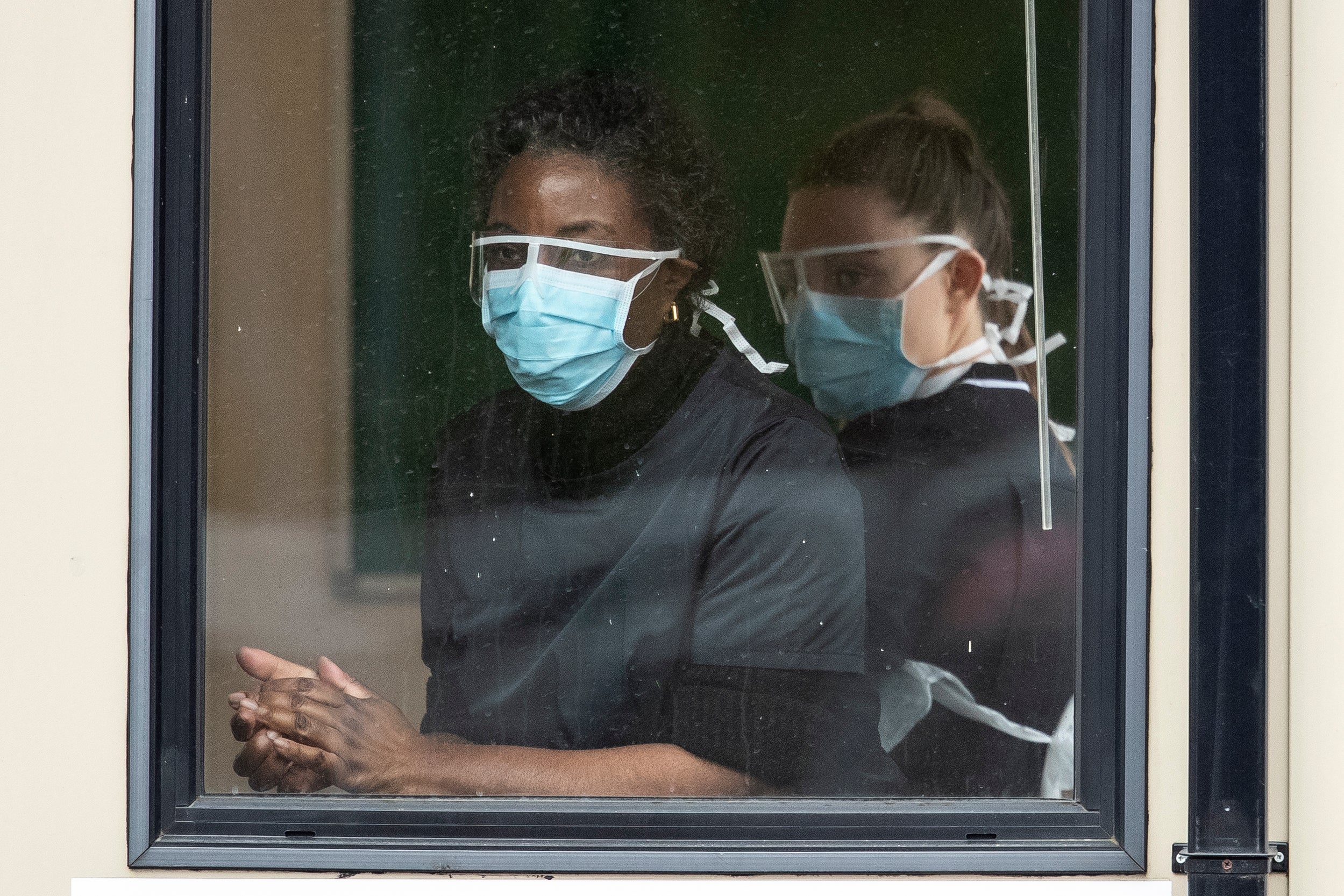Mental health support for NHS staff accessed 800,000 times
Ministers unveil plan to spend £500 million to boost mental health support across England after the pandemic

Your support helps us to tell the story
From reproductive rights to climate change to Big Tech, The Independent is on the ground when the story is developing. Whether it's investigating the financials of Elon Musk's pro-Trump PAC or producing our latest documentary, 'The A Word', which shines a light on the American women fighting for reproductive rights, we know how important it is to parse out the facts from the messaging.
At such a critical moment in US history, we need reporters on the ground. Your donation allows us to keep sending journalists to speak to both sides of the story.
The Independent is trusted by Americans across the entire political spectrum. And unlike many other quality news outlets, we choose not to lock Americans out of our reporting and analysis with paywalls. We believe quality journalism should be available to everyone, paid for by those who can afford it.
Your support makes all the difference.Mental health support services for NHS staff set up in the wake of the coronavirus pandemic has been accessed nearly 800,000 times.
In a sign of the psychological impact of the crisis on frontline staff more than 1,000 workers have also been referred for specific mental health assessments.
NHS England said services including a confidential support line, specialist bereavement support and a library of mental health apps were accessed 780,000 times since the pandemic began.
Well-being apps made available to NHS staff for free have been downloaded by 150,000 workers.
Hospital bosses have warned the wellbeing of staff must be a priority as the health service begins to recover from the Covid emergency with unions warning there could be an exodus of staff leaving the NHS after the last 12 months.
Read more:
A recent staff survey of 600,000 NHS workers found more than 4 in 10 staff had reported being made ill with stress in the last year.
NHS England is spending £37m on 40 dedicated hubs for each region. They will give staff access to psychological help and support including specific outreach work into critical care departments where staff have faced the most pressure.
The hubs have been modelled on the success of The Greater Manchester Resilience Hub which was set up to treat all those affected by the Manchester terrorist attack in 2017.
A total of £15m has been spent already getting 22 hubs up and running and in January and February alone, 1,099 NHS staff were referred for an assessment. The hubs will offer staff help with conditions including anxiety or depression as well as post-traumatic stress disorders.
Steve Powis, NHS England’s medical director said: “It's important to acknowledge that our staff have gone through an incredibly pressured year. They are in many cases exhausted, tired, and they need to recover and our staff recovery needs to be a part of service recovery. It's when our staff are working at their best and feeling recovered, that they will be able to do their best for patients.”
The wider impact of Covid and lockdown on society has already triggered a surge in mental health demands from the public. The government has allocated an extra £500m to help shore up mental health services across the country and NHS England said it would be prioritising investment for mental health.
Amanda Pritchard, NHS England’s chief operating officer said: “We saw after the first wave of Covid, an immediate increase in demand for mental health services and we know from all of the evidence internationally around trauma that you would expect a second surge 18 months later.
“So the immediate demands on mental health services haven't gone away, they've continued and they're growing, but I think the thing that our mental health colleagues would want us to be aware of, is that we need to be thinking about this as a long term, not just a short term increase in demand.”
In the autumn spending review Chancellor Rishi Sunak announced the extra £500m for mental health recovery.
On Friday the Department of Health and Social published the plan to spend that money which included £15m of targeted spending in the most deprived local areas with councils getting £500,000 for spending on debt advice, carers support and outreach for people suffering loneliness.
There will be £13m for support to university students and £14m to encourage people with severe mental health problems to get physical health checks. Other spending will include £31m for learning disability and autism services as well as £5m for suicide prevention.
Minister for mental health Nadine Dorries said: “I am acutely aware of the impact the pandemic has had on the mental health and wellbeing of many. The public has shown great resilience during these challenging times, but some groups including young people and those with severe mental illness have been impacted more than others.
“This funding will support these groups, both in initiatives specifically designed in the wake of the pandemic, and by enabling us to bring forward our NHS Long Term Plan commitments.
“For anyone who is feeling they need support, I urge you to reach out. Our mental health services are here for you.”
Join our commenting forum
Join thought-provoking conversations, follow other Independent readers and see their replies
Comments